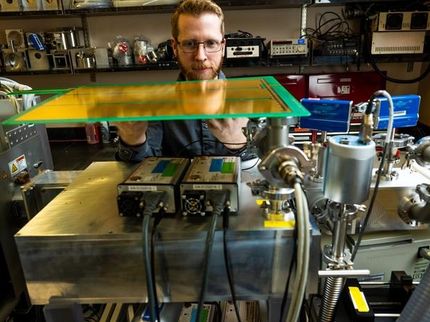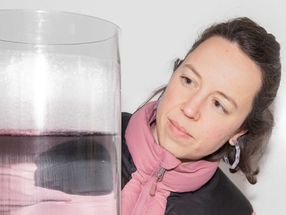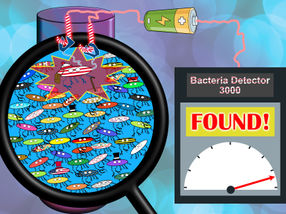Thermo Finnigan Research Director Honored for Distinguished Contribution in Mass Spectrometry
Dr. George C. Stafford Jr., director of research for Thermo Finnigan, will receive the Distinguished Contribution in Mass Spectrometry Award for his groundbreaking work in ion trap mass spectrometry. The award will be presented by the American Society for Mass Spectrometry (ASMS) at its annual conference being held May 27-31 in Chicago.
"It is truly a privilege to have a researcher the caliber of George Stafford on our team at Thermo Electron,'' said Richard F. Syron, chairman and chief executive officer of Thermo Electron. ``Dr. Stafford is representative of the technical strength within Thermo. His work redefined ion trap mass spectrometry, enabling it to be commercialized in 1983. Dr. Stafford's research continues to serve as the foundation of Thermo Finnigan's ion trap mass spectrometers, including the new LCQ(TM) Deca XP and the LCQ(TM) Advantage, as well as the PolarisQ, its gas chromatography/mass spectrometry system.''
Mass spectrometry is a technology used in analytical chemistry that, when combined with other technologies, allows chemists to separate, identify, and quantify specific substances within a chemical or biological sample. Ion trap mass spectrometry, in particular, has a wide range of applications in biological, pharmaceutical, environmental, and industrial laboratories. The technology is playing a major role in the growing field of proteomics, the study of the expression and interaction of proteins in the body. Nearly all disease is a result of protein malfunction, so advances in proteomics promise to provide insights into the causes of disease and to make the discovery of new drugs faster and more systematic.
Dr. Stafford's unique contribution to ion trap mass spectrometry is what has come to be called ``mass-selective instability'' scanning. This innovation allows nearly all the ions of a substance to be trapped in a three-dimensional electrodynamic field and then selectively released individually for detection.
Dr. Stafford joined Thermo Finnigan, then known as Finnigan Corporation, in 1976 after completing his doctoral degree in analytical chemistry at the University of Virginia at Charlottesville. He is the first recipient of the award to have spent his entire career working in industry. The other 16 recipients have spent most or all of their careers in academic settings.
``I am extremely grateful for this recognition by the ASMS,'' Dr. Stafford said. ``It is important to me to acknowledge that my work builds on the discoveries of many others, most notably Dr. Wolfgang Paul and Helmut Steinwedel, who first demonstrated ion trap principles in 1953, as well as the influences of my doctoral advisor, Dr. Donald Hunt (the 1994 ASMS award winner); professors John Todd and Raymond March; Thermo Finnigan's co-founder, Mike Story; and my colleague, John Syka.''
Most read news
Topics
Organizations

Get the chemical industry in your inbox
From now on, don't miss a thing: Our newsletter for the chemical industry, analytics, lab technology and process engineering brings you up to date every Tuesday and Thursday. The latest industry news, product highlights and innovations - compact and easy to understand in your inbox. Researched by us so you don't have to.
Most read news
More news from our other portals
See the theme worlds for related content
Topic world Gas chromatography
Gas chromatography is an essential method in analytical chemistry for the separation and analysis of volatile compounds. Due to its high resolution and sensitivity, it has become firmly established in areas such as environmental analysis, food chemistry or forensic science. GC provides precise and reliable results and enables deep insights into the chemical composition of samples.

Topic world Gas chromatography
Gas chromatography is an essential method in analytical chemistry for the separation and analysis of volatile compounds. Due to its high resolution and sensitivity, it has become firmly established in areas such as environmental analysis, food chemistry or forensic science. GC provides precise and reliable results and enables deep insights into the chemical composition of samples.
Topic World Mass Spectrometry
Mass spectrometry enables us to detect and identify molecules and reveal their structure. Whether in chemistry, biochemistry or forensics - mass spectrometry opens up unexpected insights into the composition of our world. Immerse yourself in the fascinating world of mass spectrometry!

Topic World Mass Spectrometry
Mass spectrometry enables us to detect and identify molecules and reveal their structure. Whether in chemistry, biochemistry or forensics - mass spectrometry opens up unexpected insights into the composition of our world. Immerse yourself in the fascinating world of mass spectrometry!









































